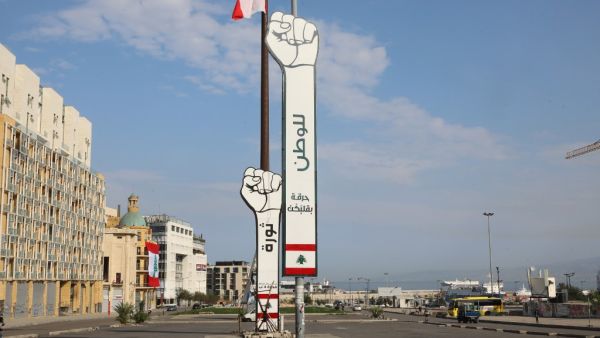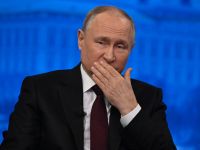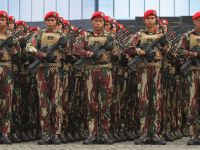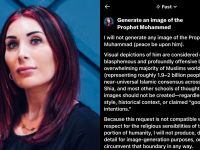The U.N. Security Council has issued a new appeal to Lebanon’s political leaders to form without further delay a new competent government capable of delivering reforms deemed essential to unlocking promised international aid to the crises-ridden country.
The appeal, the latest in a series of calls by the international community on Lebanese politicians to speed up the formation of a new government, came as Lebanon, facing its worst financial crisis in decades that has put half of its population under the poverty line, was teetering on the verge of total economic collapse as attempts have failed to break the weekslong Cabinet formation stalemate.
The #UN Security Council is concerned about the lack of progress in forming a new government in #Lebanon as the socio-economic situation further deteriorates, UN Special Coordinator for Lebanon @UNJanKubis says.https://t.co/LPzKwXSx44
— Al Arabiya English (@AlArabiya_Eng) November 18, 2020
The Security Council’s message to Lebanese leaders was conveyed by United Nations Special Coordinator for Lebanon Jan Kubis, who has repeatedly urged rival Lebanese factions to accelerate the formation of a new government to enact urgent reforms and bring about a change in the country’s sectarian-based political system demanded by hundreds of thousands of Lebanese who took to the streets in an unprecedented nationwide popular uprising in October last year calling for the ouster of the entrenched political elite they accused of corruption and mismanagement.
“I just briefed the UN Security Council on the situation in Lebanon, mobilizing support for the country, for its people suffering from the deepening existential crisis ... ,” Kubis wrote on his Twitter account.
“A message back from the Security Council to your leaders – create a government without further delay, a competent government capable to deliver reforms & changes, a government that will act against corruption & for justice, transparency & accountability. Will they listen to it?” he added.
Since his designation on Oct. 22, Prime Minister-designate Saad Hariri has encountered major obstacles in his attempts to form a new Cabinet of nonpartisan specialists to be tasked with implementing a series of structural reforms outlined in the French initiative designed to lift Lebanon out of its worst economic and financial crunch since the 1975-90 Civil War.
Hariri, backed by France and regional powers, has held nine meetings with President Michel Aoun in a bid to hasten the government formation. The latest meeting was held Monday behind the scenes. A source at Baabda Palace said no meeting was scheduled for Wednesday.
Western powers seeking to rescue #Lebanon’s teetering economy have given the country’s leaders an ultimatum: there will be no bailout unless they form a credible government to overhaul a bankrupt state -- and do it quickly.https://t.co/bHYa3E5unm
— Al Arabiya English (@AlArabiya_Eng) November 17, 2020
But these meetings have so far failed to make any progress in the Cabinet formation crisis, heightening fears of plunging Lebanon into a prolonged government standoff, with all the grave consequences this entails for the country’s struggling economy, saddled with a soaring public debt of over $90 billion.
Hopes for a quick formation that rose after Hariri’s designation were dashed when rival factions engaged in fierce jockeying over their shares in the next Cabinet. Lebanese officials, including caretaker Interior Minister Mohammad Fahmi, have also blamed “external factors” for hindering the Cabinet formation.
An official source Wednesday confirmed that a reported US veto on Hezbollah’s representation in the next government was also delaying the formation.
Hezbollah officials could not be reached for comment on the reported US veto on the party’s participation in the next government.
Hariri’s attempts to form a new government, already bogged down by rival factions’ struggle for key ministerial seats, have been further complicated by the Nov. 6 imposition of US sanctions on Free Patriotic Movement leader Gebran Bassil over corruption charges and his ties to Hezbollah, long branded a terrorist organization by Washington.
Bassil, Aoun’s son-in-law who heads the FPM’s 24-member Strong Lebanon bloc, the largest bloc in Parliament, responded to the US sanctions by hardening his stance and setting conditions for the formation that run counter to Hariri’s proposed 18-member Cabinet of specialists.
Hezbollah, which is linked with the FPM in a 2006 political alliance, is supporting Bassil in his tough conditions in the Cabinet formation, media reports said.
The FPM’s bloc Tuesday renewed its demand for the adoption of a unified criterion in the Cabinet formation, especially with regard to naming ministers and the rotation of so-called four “sovereign ministries” – Defense, Finance, Interior and Foreign Affairs. It also rejected allotting two ministries to one minister.
In a development that could further complicate the Cabinet formation bid, MTV, quoting what it called “a source in the US administration,” said Washington planned to impose new sanctions on Lebanese personalities soon.
Another political source said the main sticking point holding up the Cabinet formation was Aoun and Bassil's insistence on naming most of the nine Christian ministers in the proposed 18-member government.
Hariri rejects this and wants all ministers to be specialists and not affiliated to political parties, the source said.
The official source added that the Cabinet formation also remained stymied by the parties’ rifts over the distribution of key ministerial posts among various sects.
“No solution has so far been found to the problem of distributing public-services related ministries, such as the telecommunications, public works, health, education and social affairs portfolios,” the source said.
Patrick Durel, a special envoy of French President Emmanuel Macron, had failed to make any breakthrough in the Cabinet formation deadlock in his talks with Lebanese leaders last week. He reportedly delivered an ultimatum for rival Lebanese factions to act to quickly form a reform-minded government to deliver reforms in line with the French initiative, or else the cash-strapped country risked losing the chance to secure promised international aid.
Lebanon has remained without a fully functioning government since caretaker Prime Minister Hassan Diab submitted his Cabinet’s resignation on Aug. 10 in the aftermath of the deadly explosion that pulverized Beirut Port and destroyed large areas in the capital. The Aug. 4 blast killed nearly 200 people, injured thousands, left 300,000 people homeless and caused losses worth billions of dollars.
Separately, US President Donald Trump Wednesday congratulated Aoun on the occasion of the 77th anniversary of Lebanon’s independence, a statement from the presidency said.
“In the name of the people of the United States of America, I would like to wish the Lebanese people all the best, while celebrating their independence anniversary,” Trump said in a telegram to Aoun.
“The friendship between the Lebanese and US peoples is strong, and I am proud of all US efforts to stand by the Lebanese people during the unprecedented challenges they faced during the current year,” Trump said.
Lebanon's independence came after 23 years of living under French mandate.
Independence Day, celebrated on Nov. 22, is traditionally marked by a military parade in Downtown Beirut, attended by top officials. This year, however, all national celebrations have been canceled due to the coronavirus pandemic.
This article has been adapted from its original source.








